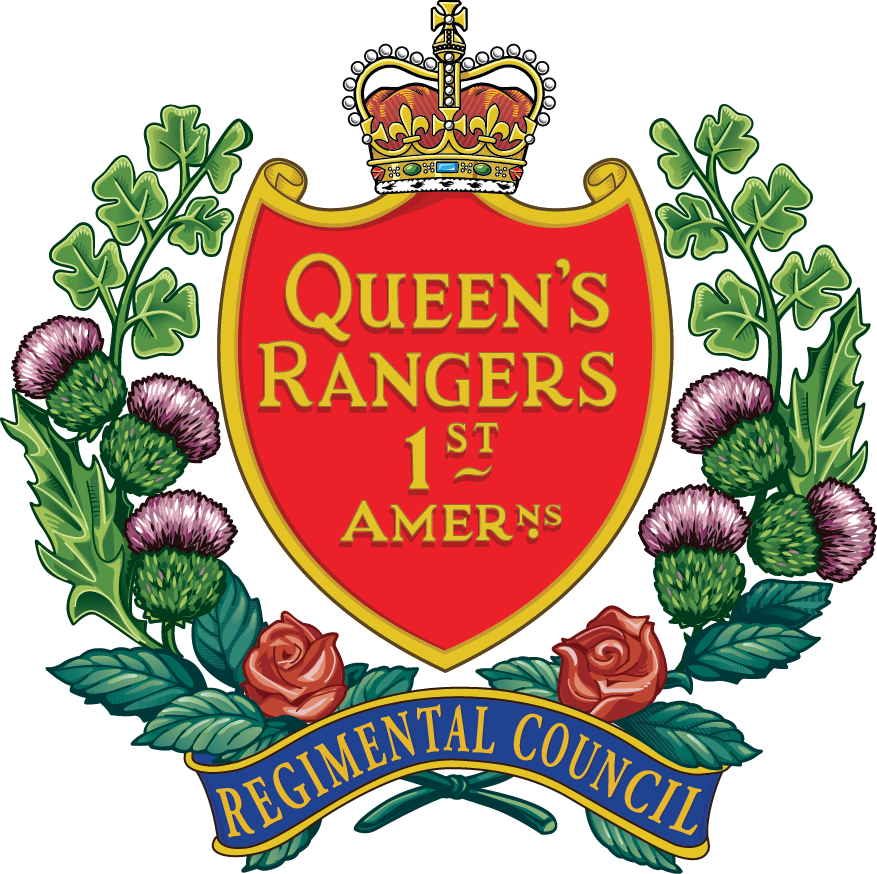Leaving Command, Lingering Feelings: LCol Phil Halton on the Rangers
/He spent a satisfying stretch with the regular forces, even winning special praise for peacekeeping duties in Bosnia but for LCol Phil Halton, his experience with the Queen’s York Rangers stands above.
“It’s been the most rewarding thing I’ve done in my life,” said LCol Halton.
“Even more than full time service. It’s the people who I’ve ended up working with and bonding with over the years. It’s a special place. “
He was speaking in the final weeks of his time as QYRang Commanding Officer, about to hand over the reins to Major (about to be promoted LCol) Eric Thorson after 4 years at the helm—a year longer than the norm because his original successor had to back out when his civilian employer transferred him out of town.
LCol Halton has had an eventful military career, starting in 1992 when right out of high school he went to Collège militaire royal de Saint-Jean — a unilingual Oshawa boy who decided he needed to immerse himself in a francophone environment, the better to rapidly become a bilingual officer.
“I jumped into the deep end. It was a challenge, but also really fun.”
When the college was closed, he finished his studies at RMC, then headed straight off to Petawawa where he joined the Royal Canadian Dragoons and jumped right into training as a reconnaissance troop leader. It was not long before he was getting on a plane to Bosnia to become part of the NATO mission enforcing the Dayton Accord.
It was an unsettled, tense time in the former Yugoslavia with the formerly warring factions still nursing deep grievances and still prone to provocations that threatened to reignite the fighting.
On Christmas Eve 1998, he and his troops had to forcibly remove a rogue group of Croatian police officers who had decided to push a border post over into Bosnian territory. Although the Croatians were heavily-armed and had to be pointedly threatened, the operation was carried out with no bloodshed.
NATO rewarded him and his people with a commendation.
“It was my highlight in the regular army,” said LCol Halton.
He left active service in 2002, moving to Toronto and joining the Queen’s York Rangers. He was not going to be a fulltime soldier any more but did not want to cut the cord.
“It’s a sense of service, of civic duty if you will. One of the real benefits of the military is the camaraderie, the friendships you build. I wasn’t ready to give that up. With the Rangers it’s been a huge part of my life.”
His first years with the unit were heavily focused on training people to go to Afghanistan. Almost half the unit ended up being deployed.
LCol Halton never went with the army, but did travel to Afghanistan four times as a civilian, doing security-related work for organizations such as the International Rescue Committee and Save the Children.
Back home, one of his highlights with the Rangers came in 2014 when he was the commanding officer of a reconnaissance unit with members drawn from all over Ontario for a major training exercise: “Stalwart Guardian 2014”. The scenario could have been pulled from the history of the Rangers: deployed in Niagara Region, the mission was to repel a mock invasion from across the border.
In that case, the pretend enemy was not our friends from the USA. But there was a time when real-life Rangers fought crucial battles against Americans on that very ground. LCol Halton knew a bit of the history before joining the unit and quickly learned a lot more.
“We’re pretty proud of our history and we’ve taken steps to make it real for folks.”
During his time as commander there was much professional training where members walked some of the battlefields where Queen’s York Rangers served with distinction, places like the Battle of Queenston Heights from the War of 1812, Vimy Ridge and the Somme.
“We talked about the decisions made and tried to get inside the heads of our forebears.”
He is proud of the personal connections he forged with the people who stage re-enactments, some of whom are professional soldiers.
“They have a lot to teach us about where we come from, where our roots are.”
As he steps aside as Commanding Officer, Phil Halton will no longer be taking an active role in the unit, but will continue to serve on the Regimental Council. He is taking up a new position as a part time instructor at the Canadian Army Staff College in Kingston.
But his heart remains here.
“I’ll always be a Queen’s York Ranger. That’s my tribe, if you will.”

